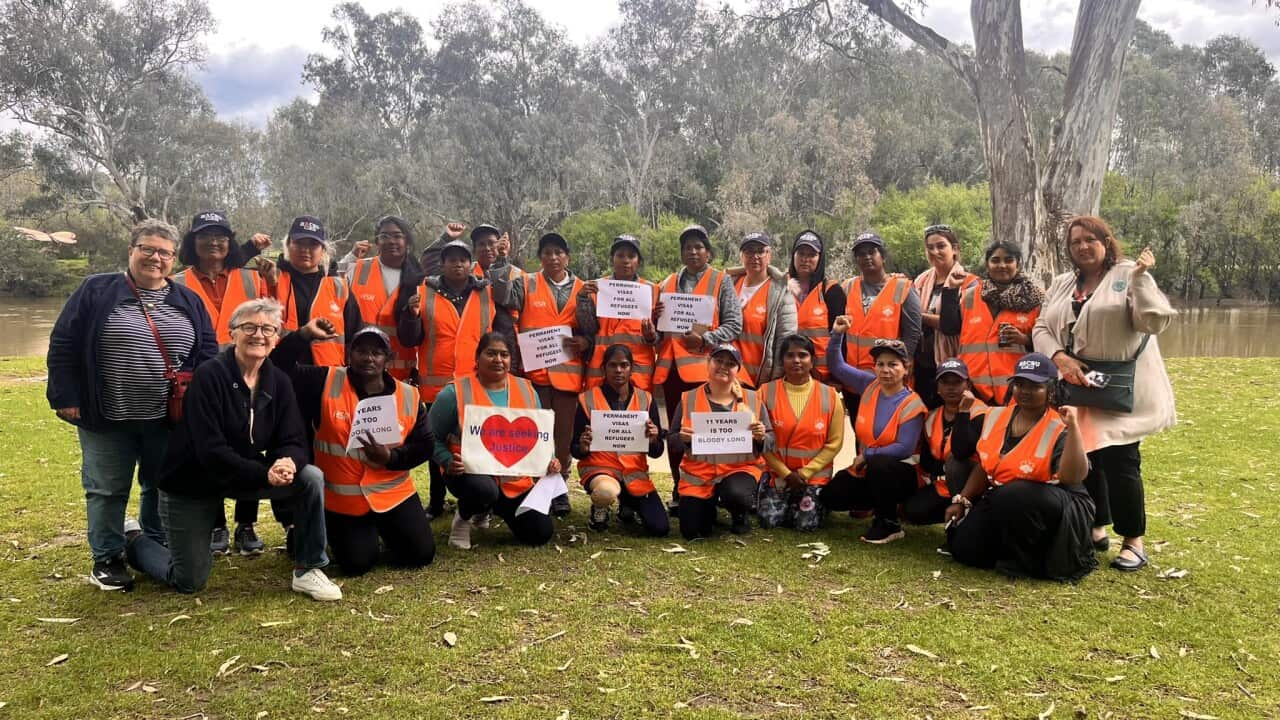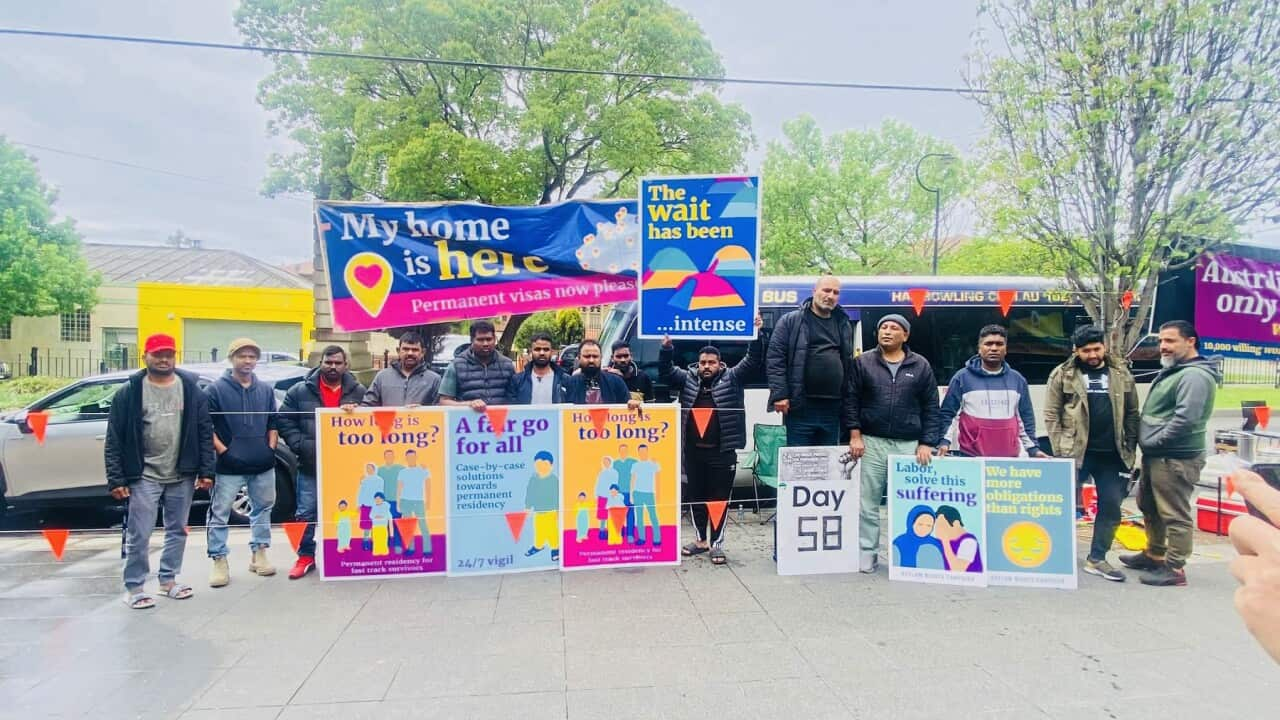TRANSCRIPT
Twenty two refugee women are approaching the halfway point in their 640 kilometre trek that will end at the Parliament House in Canberra.
The women, hailing from Iran and Sri Lanka, are on a mission to put an end to their life of uncertainty. They have been waiting to gain permanent visas for over a decade.
Harini Rathnakumar, one of the participants in the walk whose family is from India, explains what they hope to achieve.
"We have four demands: the first being to abolish the IAA and fast track system. The second being study and work rights for all refugees. Third one was a permanent visa for all 10,000 refugees. Fourth one was permanent settlement for Manus and Papua New Guinea refugees."
As Harini says, there are more than 10,000 refugees in Australia who remain in a state of limbo due to the fast track visa application process. The fast track application process was implemented by the Coalition in 2014 and divided all asylum seekers into three categories, with different processes for each. That effectively left a large number of them on bridging visas, unable to find permanent residency in a country which they have come to call home.
Rathi Barthlote, a mother of three from Sri Lanka, and one of the founders of Refugee Women Action for Visa Equality, says this has had severely affected her and her children.
"My daughter says: 'Why mum, we can't get a visa?' I said: 'No. We will. We will get a visa one day. We will. But it's past ten years. No, not ten, eleven. More than eleven years. When they go to school, the children sometimes they have bullying and everything because I used to tell the school we don't have any visa or anything. So I'm just nervous and I can't go and tell my story to the other teachers or anyone else because I don't have a visa."
The women began their march on September 22 from Thomastown in Melbourne and are set to arrive at their destination by October 18. They crossed the Victoria border to enter New South Wales on Thursday (October 5).
Samira Turkian Zadeh, an asylum seeker from Iran and also a mother from three is another participant in the march. She says refugees such as herself have done more than enough to prove that they're worthy of a permanent place in Australian society.
"When Australia needed us, always we stepped in; for aged care, for kinder, for childcare, we always assisted. In hospitals, in the duration of the corona(virus), we always stepped in. We don't know how we have to prove ourselves."
For people such as these, having their family close is a luxury they simply cannot afford. Harini explains how those closest to her have been torn apart by the distance.
"So my dad had to leave my mum and my two siblings behind. Looking back now, I was a young girl so I didn't know much. But, looking back, I'm heartbroken because I haven't seen my mum for more than ten years. It's been almost eleven years. I came here as a ten-year-old, I'm a 21-year-old. I'm married now and she could not experience, she could not be part of that because they're separated. My dad, I don't know how he's living here without her. They love each other so much but they've been unfairly separated for more than ten years. I just want them back together, I just want to live as a family under one roof again."
Samira, who claims that her children do not have access to Medicare and other types of government support, says that for migrants, there is no other path towards a safe and stable life.
"We just came here to feel safety. There is no turning back. We can't go back. And we want to make our life here."
In her message towards the federal government, Rathi makes a desperate plea.
"We are also human. We have feelings and everything so don't leave us like that, for more than eleven years, depressed and uncertain. We are living that kind of, the fear life. Because we think 'when are we going to get our visa?', 'when are we going to see our families?', 'when am I going to see my mum?' Because I want to touch my mum because, you know, sometimes when my mother is calling me, she says 'when are going to come and see me?', I say 'I don't know mum.' She says 'before I die, I want to see you.' So think about, we're also human, we have feelings, so (from) this government, I am asking, (I) kindly ask this government to help us, all the refugees who (are) in limbo because we're also human."
Whether the long distance walk to the Parliament house and the calls for a life of greater safety and stability of these migrants will be answered remains to be seen.
If you'd like to follow the progress of the twenty-two migrant women all the way to Parliament House, you can do so here:













